An Indefatigable Crusader: Dr Syud Hossain
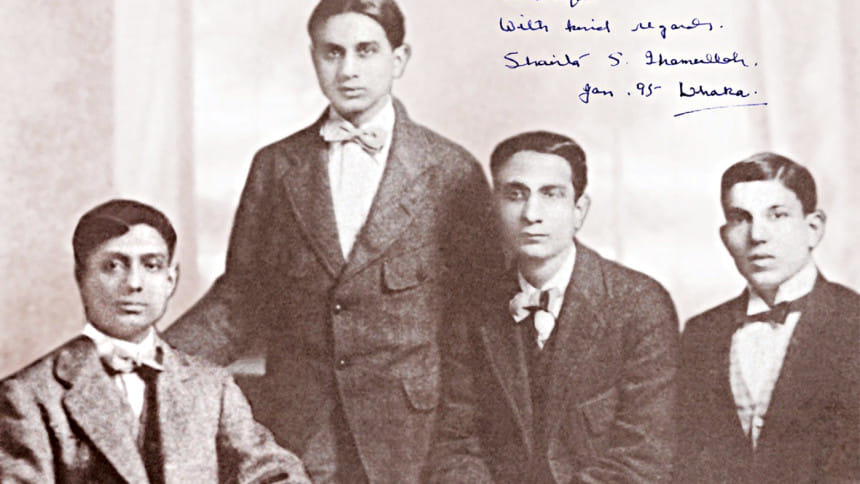
Syud Hossain was born on June 23, 1888, in Calcutta the son of Nawab Syud Mohammed Azad (1850-1915), who belonged to an illustrious old aristocratic family of Dhaka. His mother was the daughter of the renowned Nawab Bahadur Abdul Latif (1828-1896) of Faridpur, East Bengal (Bangladesh). Hossain was the great- great - grandson of Mir Ashraf Ali Khan (d.1829), a premier nobleman and a famously wealthy zamindar of 19th century East Bengal, who was second only to the then Nawab Naib-Nazims of Dhaka in wealth, prestige and social status. The metropolitan Bishop of Calcutta, Reginald Heber (1783-1826) an intrepid traveler on his episcopal visit to Dhaka in 1824, described Mir Ashraf Ali as "the chief Mussulman gentleman in the district of Dacca." Sher-e-Bangla A K Fazlul Huq (1873-1962) and Sir Hasan Suhrawardy (1888-1946), were the brother-in-laws of Hossain.
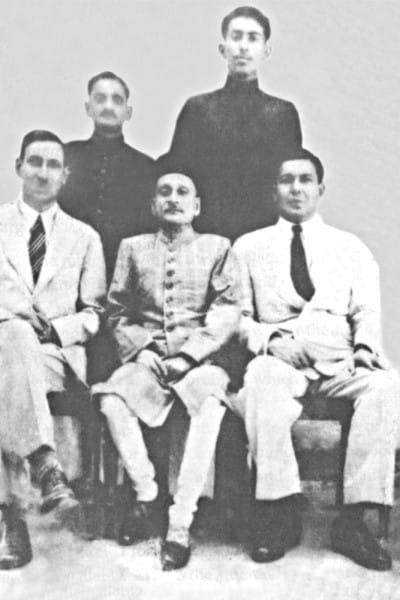
Syud Hossain was the embodiment of some of the finest qualities of his generation. After finishing his early education at Aligarh, he joined the government service as a Sub-Deputy Collector in Calcutta. However, by nature he was inclined towards political activism. At this period he seemed to be looking for the real purpose in his life. He was endowed with an innate capacity for creative writing and a flair for language, especially in English. He was also a gifted orator. A voracious reader of history, philosophy, politics, comparative religion, art and literature Hossain was fast developing into one of India's budding erudite intellectuals and a formidable extempore speaker on varied subjects.
Although, Hossain never lived in Dhaka he nonetheless maintained a strong emotional link to the city of his forefathers. It was the only city in the Indian subcontinent he ever wrote a historical biography of in a slim volume entitled `Echoes from Old Dhaka' published in 1909, before his departure for England. He would return to his beloved Dhaka one last time in 1937, to visit his close relatives at Begum Bazar in the old part of the city during his whirlwind tour from USA.
Early on Hossain's father had made future plans for him. He wanted him to pursue a career in law by becoming a barrister. Therefore, on June 1909 with little joy in his heart Hossain departed for London, and joined Lincoln's Inn to study law. However, his mind was soon engaged in various other pursuits which aroused his interest. He hung around in England for seven years without completing his law course, for his forte lay elsewhere. During this period the first world war had begun and Europe was in great turmoil. The old world was in transition. It was also an exciting time. News from India of the Home Rule League, Khilafat movement and fame of the unassailable Annie Besant, left an indelible imprint on the impressionable minds of the educated and politically conscious Indian youth like Hossain. A determined Hossain returned to India without becoming a barrister in 1916. A year earlier, Mahatma Gandhi had also come back from South Africa to invigorate Indian politics as never before. By now, Hossain was sure of his calling. It would be - journalism, championing of Indian nationalism and independence from British rule.
Back in India Hossain joined Pherozeshah Mehta's newspaper 'Bombay Chronicle' as an associate editor of which the Englishman B G Horniman the editor- in- chief, was actively committed to Indian independence from British rule. However, Horniman soon fell afoul of the British colonial authorities. With his future uncertain the person who took over his onerous responsibilities with great devotion was none other than the hugely talented and flamboyant Hossain. Soon his firebrand journalism growing affiliation with Indian nationalist politics, closeness to Annie Besant and joining of the Home rule movement as an ardent supporter, placed him under the surveillance of the British intelligence agencies. He became a marked man. As a member of the Home Rule League delegation to England in 1918, he and his colleagues were intercepted at Gibraltar, off-loaded from their ship, briefly detained, interrogated and forcibly sent back to India with cancelled passports.
After a few successful years with the Bombay Chronicle through which Hossain infused a new energy, style and trend into Indian journalism by his sensational eye-catching headlines imbibed from the print media in London, particularly from the Fleet Street tabloids attracted huge attention of curious Indian subscribers and buyers. His deft marketing strategy, contributed to the manifold sales of the newspaper. His patriotic editorials and riveting feature articles, became the household byname for excellence in journalism, causing great headache to the British authorities both in India and London. By then Hossain had evolved into a fearless opinion writer in the Indian political arena, strongly espousing self governance for India.
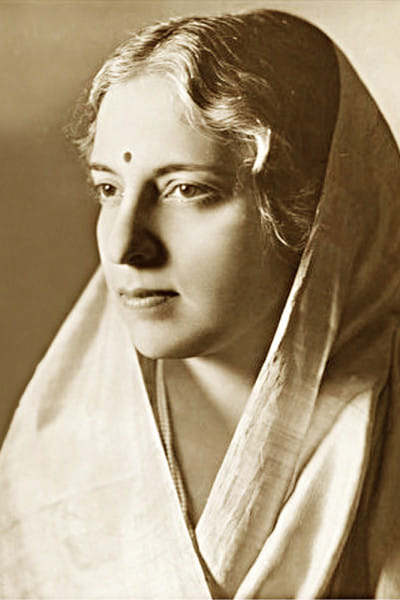
In 1919 Hossain met with Motilal Nehru the accomplished Allahabad lawyer who had started his own news-paper 'The Independent'. Motilal was also the President of the Congress Party and was eagerly looking for someone in the style and stature of Hossain, to help him run his newspaper. A devout nationalist, Motilal made Hossain his new editor. However, while Hossain plunged headlong into his new job with a gusto, his intimacy and easy access to the Nehru household at 'Anand Bhavan' would prove fatal for the handsome young man. Motilal's attractive and sprightly teenage daughter Swarup alias Nan (later Vijaya Lakshmi Pandit) fell head-over-heels in love with the suave, dashing Hossain who returned the favor in equal measure. They were simply besotted with each other. Vijaya was only nineteen and Hossain thirty- one. This is the most hushed up high- profile love affair in British India of that time. Here the readers must bear in mind that this incident took place a good hundred years ago, and should be viewed in the peculiar context of the times. In this regard, I have consulted information from authoritative sources and further validated it from the last surviving senior most family member of Hossain, who is a credible resource. In a nutshell, this is what had actually taken place. One day a distraught Vijaya suddenly showed up at Hossain's house in Allahabad, and tearfully broke the news that her parents were about to get her married off to a barrister named Ranjit Pandit. A near hysterical Vijaya implored Hossain to do something urgently. The atmosphere was charged with high emotion. In the heat of the moment, a perplexed but sincere Hossain hurriedly fetched a Maulvi and solemnized their marriage, in accordance with Muslim law. It would be his undoing, the making of a great tragedy! At the spur of the moment it had not occurred to the young man what he would be up against later on. For those days, it was a shocking societal scandal! At that time Motilal Nehru was in Lahore attending a meeting of the Congress party. On learning of the marriage, a greatly upset Jawharlal Nehru and his mother dashed off to see Mahatma Gandhi who was then visiting Allahabad for his immediate intervention and help. The rest is history.
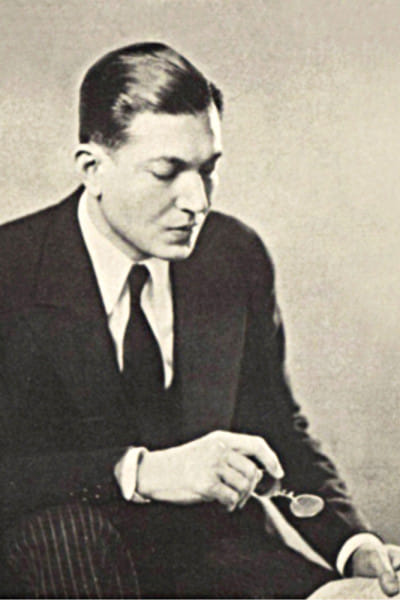
In those days, the Nehru family was known to be a highly educated, progressive, westernized and of a secular disposition. The redoubtable Indian writer Nirad C Chaudhuri had once dubbed them as 'Islamicised Hindus', alluding to the family's composite cultural ethos in - dress, custom, speech and mannerism. However, the traditionally conservative Hindu society was not yet ready to accept Vijaya and Hossain as a conjugal couple. The Congress high command was alarmed at the possible political fallout emanating from such a bold interfaith relationship among the vast multitude of its followers. Socially and politically, the stakes were indeed high for the Nehru family and the Congress party. Moreover, Gandhi was grooming Jawaharlal Nehru as his eventual political heir. The Nehru family too, was not at all supportive of it. In fact, Jawaharlal Nehru's friendship with Hossain deteriorated sharply from there on and became formal. Gandhi, Asaf Ali, Susannah Joseph and a motley group of confidantes persuasively prevailed upon Hossain to annul the marriage, and agree to a complete separation of ways. He finally succumbed to psychological pressure and had to give a solemn written undertaking to Gandhi to that effect. Hossain literally worshipped Gandhi and although devastated, quietly accepted his advice and reconciled to his cruel fate. A highly conscionable person, he did not want to 'rock the boat'. He knew that it would sow discord in Indian society, thereby proving detrimental to the Indian national interest. He was also mindful of the colonial government, which stood to profit from any adverse situation arising in the nascent Indian political landscape. Therefore, he voluntarily chose self-sacrifice as his ideal. While Vijaya was packed off to Gandhi's Sabarmati Ashram to get over the break-up, where she had to undergo a 'Shuddhi' a religious purification ritual as atonement, Hossain too was hurriedly shipped off to England as a Khilafat movement spokesman in a special delegation sent by Gandhi in 1921. In fact, he was barred from coming back to India anytime soon. Actually, he was summarily consigned to the life of an exile in USA for almost two decades far away from the land and the lady, he loved so dearly. In hindsight, it was much too harsh a penalty imposed upon Hossain which he bore with unusual dignity and equanimity. Meanwhile, Vijaya was married off to barrister Ranjit Pandit. It is alleged that the marriage document of Vijaya and Hossain was destroyed by a vested quarter after their enforced divorce.
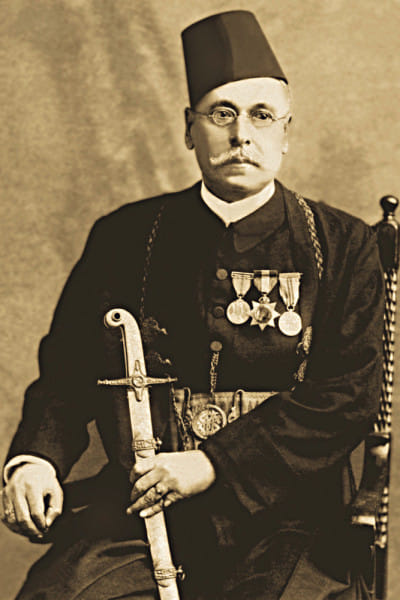
Hossain's long stay of twenty-two years as a 'glorified exilic' in the USA, embraced the terms of five American Presidents from Warren G Harding to Harry S Truman. He would return briefly to India in 1937, where he met with Netaji Subhas Bose in Calcutta. He would finally come back in 1946, on the eve of India's partition. But by then the political landscape in India had irrevocably changed into two polarized, antagonistic nations of Hindus and Muslims. There was no other option than the inevitable partition of British India, into two separate independent states - India and Pakistan. It was the antithesis of everything Hossain had dreamt, worked, lived and hoped for. He was profoundly hurt. But it was already too late!
It would literally require volumes to fully document and write on Hossain's one-man indefatigable crusade in the USA, where he ceaselessly canvassed for India's independence from British rule. He toured forty-eight US states an enviable feat in those difficult days, as one possessed. He constantly spoke and wrote about India. There was hardly any leading university, college, church or town-hall, he did not cover and address. During his whirlwind charismatic speaking engagements within the US, he too often lived in and out of hotels, his favorite Cognac as his constant companion which he sipped from a hip-flask. Perhaps, this is how he coped with a gnawing inner loneliness!
Hossain singularly shaped the public opinion in America, and influenced the policy of successive US administrations in favor of India's emancipation from British rule. And, he lobbied hard for it with the US civil bureaucracy and law makers. In the 1930s, he moved to California to work with fellow Indian settlers in that state for their cause and that of India. He lectured at the University of Southern California as an erudite scholar which conferred on him an honorary doctorate degree. He was practically India's non-accredited Ambassador to USA, and regarded as such by the Americans. In the meantime, Vijaya's husband had died in 1944 in India, and her children were studying in the US. Therefore, in 1945 she moved temporarily to the US to work for India. Thus, Hossain and Vijaya were together again. They toured the US speaking passionately at various venues to influence US policy towards India's freedom. They were at their very best reveling in their close companionship, which would sadly be short lived again. However, their high-profile togetherness had not gone unnoticed in India, and concerns were raised again in vested quarters.
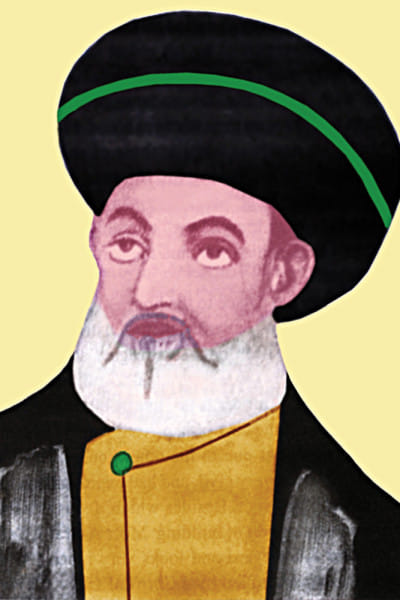
Hossain finally managed to return to India in 1946, on the eve of India's partition. At that time he was harboring a keen interest in entering parliamentary politics after India's independence. His nephew Syud Iqbal Ahmed now a dignified octogenarian fondly recalls his homecoming "I met my uncle for the first time when he visited Calcutta in 1946. He was staying with his brother-in-law Sir Hasan Suhrawardy at his house called 'Kashana'. I was eight years old then, but clearly remember going with my father to bring him over to our house for lunch and meet other members of the family. He was a very handsome man with a fair complexion. He loved Indian food, especially my mother's cooking."
In Delhi, Hossain put up at the Imperial Hotel. However, soon after India's independence he was sent off to Egypt by Nehru as India's first ambassador in 1948, while Vijaya was dispatched to the Soviet Union as India's ambassador. Thus, their brief happy association came to an abrupt end again. A workaholic Hossain, wholeheartedly engaged himself as India's envoy to Egypt. He toured the Middle East explaining independent India's political philosophy and foreign policy. He had the rare distinction of being specially invited to address a session of the Arab League where he spoke eloquently in English as well as in fluent Arabic, to repeated ovation from the august assemblage of Arab dignitaries. During this period Vijaya managed to visit Hossain in Cairo, on her way to attend the session of the UN General Assembly, in New York in 1949. It would be the last time they were seen happily together. Unfortunately, Hossain died from a massive heart attack on 25th February 1949, a few days after Vijaya left Cairo. At the request of the Indian government, he was given a state funeral by the Egyptian government in Cairo, usually accorded to a head of state or a national leader and lies buried there. In his premature passing, India lost a worthy son and an indomitable patriot. However, those close to Hossain swore that he eventually died of a broken heart. From what one may ask? But then your guess is as good as mine!
I am indebted to Syud Iqbal Ahmed and late Syud Zaker Hasan in whose delightful company all those years ago, I had first listened in rapturous silence as they spoke in earnest of a vanished world - the extraordinary life and times of Dr Syud Hossain - as dusk fell upon us with a hush!
Waqar A Khan is the Founder of Bangladesh Forum for Heritage Studies.

 For all latest news, follow The Daily Star's Google News channel.
For all latest news, follow The Daily Star's Google News channel. 


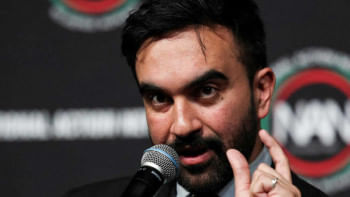
Comments